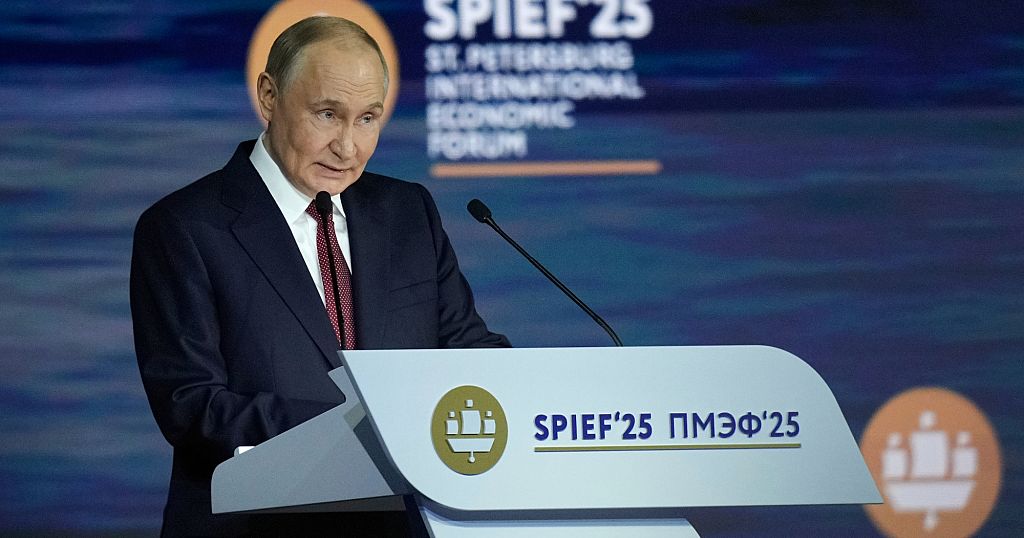Russia’s Economic Landscape: A Mixed Bag of Optimism and Warning Signs
In a recent address at the Saint Petersburg International Economic Forum, President Vladimir Putin painted a rosy picture of Russia’s economic outlook, highlighting the country’s ability to curb inflation and reduce its dependence on energy exports. According to Putin, Russia has secured the fourth spot in global gross domestic product rankings and claims the top position in Europe. However, his optimistic tone was somewhat tempered by warnings from his own government officials, who cautioned that the country might be on the cusp of a recession.
Economic Minister Maxim Reshetnikov sounded a note of caution, stating that Russia is "on the brink of going into a recession." While Putin acknowledged these warnings, he emphasized the need to prevent such an outcome. The Russian leader pointed to the steady growth of manufacturing industries, which has enabled the country to diversify its economy and move away from its traditional reliance on oil and gas exports. As Putin noted, "The perception of Russian economy as based on raw materials and dependent on hydrocarbons exports have clearly become outdated." He also cited promising economic indicators, including a 1.5% growth rate in the first four months of 2025 and a significant decrease in inflation, from double digits to 9.6%.
Despite these positive trends, the Russian economy still faces significant challenges, particularly in the form of Western sanctions imposed in response to the country’s actions in Ukraine. The economy has thus far defied predictions and performed better than expected, thanks in part to high defense spending, which has driven growth and kept unemployment low. Additionally, large recruiting bonuses for military enlistees and death benefits for those killed in Ukraine have injected more income into poorer regions. However, economists warn that the long-term outlook is less rosy, with inflation and a lack of foreign investment posing significant threats to the economy’s stability.
As Russia continues to navigate the complexities of its economic landscape, one thing is clear: the country’s future prosperity will depend on its ability to balance short-term gains with long-term strategic planning. With the global economy becoming increasingly interconnected, Russia’s economic trajectory will undoubtedly have far-reaching implications, not just for its own citizens, but for the international community as a whole. As the world watches Russia’s economic developments unfold, it remains to be seen whether the country can sustain its current growth momentum and overcome the challenges that lie ahead.
